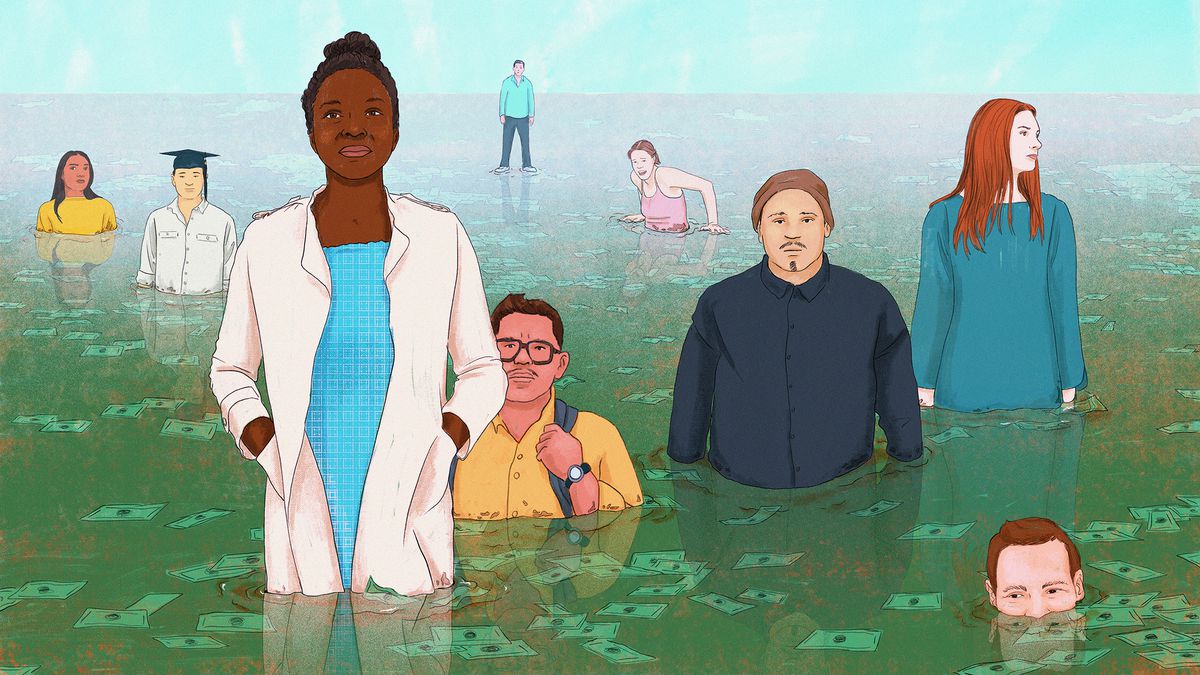RIO DE JANEIRO, BRAZIL – The economic crisis, triggered by the pandemic of the new coronavirus, has caused the indebtedness of families in Brazil to reach a new record. Data released Monday, June 28, by the Central Bank show that in March, the indebtedness of families with the financial system reached 58%. This is the highest percentage in the historical series that began in January 2005.
The Central Bank’s calculation considers total bank debt divided by family income over a 12-month period; however, it includes data from the Continuous National Household Sample Survey (Pnad) and the Monthly Employment Survey (PME), both from IBGE, where there is a time lag, so the result released Monday is from March.

If mortgages – which usually represent a significant portion of family income – are subtracted, the debt remained high at 35.7% in March. The percentage is also a record for the historical series.
Because of the pandemic, many Brazilian families have had difficulty making ends meet. One consequence has been a greater demand for credit and an accompanying increase in debt. To give you an idea: In March of last year – at the beginning of the pandemic – total family debt was 49.4%, a percentage 8.6 percentage points lower than that in March of this year.
The Central Bank data show that it is even more difficult for families to meet their monthly bank loans and financing obligations. The relation of debts to monthly income was 30.5% in March, up from 30.0% last March. However, if mortgages are excluded from the count, the percentage of income tied up was 27.9% in March, down from 27.7% in March of last year.
Concessions
The most general data from the Central Bank, updated through May, show that last month banks’ granting of “free” loans increased 2.2% from April to R$347.5 (US$70) billion. In the 12 months to May, the increase was 2.0%. Free loans include all operations except those using savings and funds from the National Bank for Economic and Social Development (BNDES).
The data do not take into account seasonal adjustments. They are influenced by the second wave of the Covid 19 pandemic, which once again placed part of the population in social isolation and reduced entrepreneurial activity.
Loans to individuals increased by 4.3% to R$178.6 billion in May. In the 12 months to May, there is an increase of 4.8%. For corporations, loans increased 0.2% to R$168.9 billion in May compared to April. For the 12-month period ending in May, the decrease is 0.9%.
Credit Cards
Amid families’ difficulties in making ends meet, the average total interest rate charged by banks for revolving credit cards fell 6.5 percentage points from April to May, the central bank reported. The rate dropped from 336.1% to 329.6% annually. The revolving credit card, along with the overdraft, is a type of emergency loan that is readily resorted to in difficult times, even though the interest is extremely burdensome.
In the case of the installment payment plan, using a credit card, the interest rate fell from 165.7% to 164.4% per year. Looking at the total interest rate on the credit card, which considers both revolving and installment deals, the rate went from 65.5% to 62.0% per year.
In April 2017, the regulation required banks to transfer debt from the revolving credit card to the installment plan after one month at lower interest rates. The government’s intention with the new regulation was to decrease the interest rate on the revolving credit card. Thus, the risk of default theoretically decreases with the transfer to the installment plan.
Currently, however, the risk of default has increased precisely because many families face a loss of income in the wake of the pandemic.

